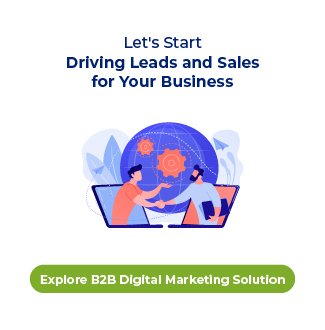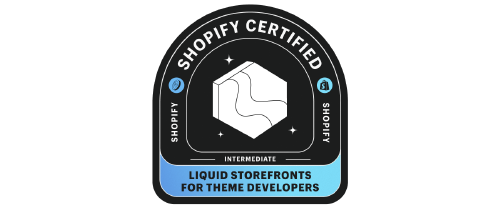As B2B companies across industries work to enhance digital interactions with prospects and customers, the demand for Digital Experience Platforms (DXPs) is skyrocketing. In fact, according to Grand View Research, the global DXP market was valued at USD 11.17 billion in 2022 and is projected to grow to USD 12.39 billion in 2023. However, before committing resources to a DXP, it’s crucial to understand the key features that make these platforms a game-changer for B2B businesses.
This blog will give you a clear overview of DXPs, highlight their key features, and explain how they can revolutionise your B2B operations to deliver exceptional digital experiences.
What Is a Digital Experience Platform (DXP)
A Digital Experience Platform (DXP) is a comprehensive software solution that combines content management, customer analytics, and marketing automation to create and manage seamless digital experiences. DXPs are designed to address the complexity of B2B customer journeys by integrating multiple systems, enabling businesses to deliver personalised, consistent interactions across web, mobile, email, and other digital channels.
Unlike standalone tools, DXPs unify marketing, sales, and customer support functions into one cohesive ecosystem, ensuring that every engagement adds value and aligns with the customer’s expectations.
Major Features of Digital Experience Platforms


Here are the main components of DXP that need to be understood to fully harness its potential for creating seamless and impactful digital experiences:
1. Unified Customer Data Management
DXPs integrate customer data from multiple sources, including CRM, ERP, and analytics tools, into a single, centralised platform. This unified view provides deeper insights into customer behaviour, preferences, and needs, enabling businesses to make informed decisions and create personalised experiences.
2. Personalization at Scale
One of the standout features of DXPs is their ability to deliver tailored experiences to individual customers. Using AI-driven algorithms, they analyse user behaviour and preferences to provide relevant content, product recommendations, and marketing messages. This not only increases engagement but also develops trust and loyalty by showing customers that their unique needs are understood and valued.
3. Omnichannel Integration
DXP provides seamless integration across various digital touchpoints, including websites, mobile apps, email, and social media platforms. This ensures consistent messaging and branding, enabling customers to enjoy a unified experience regardless of the channel they use. Omnichannel integration also allows businesses to track customer journeys across platforms, optimising engagement at every stage.
4. Content Management System (CMS)
An intuitive CMS within DXPs allows businesses to create, edit, and manage content efficiently. With support for multi-language and multi-region capabilities, it’s an essential tool for global B2B companies. By streamlining content workflows, the CMS ensures timely and accurate content delivery, tailored to specific audiences or markets.
5. Advanced Analytics and Reporting
DXPs offer powerful analytics tools that provide a comprehensive understanding of customer journeys, campaign performance, and user behaviour. These insights enable businesses to identify bottlenecks, optimise engagement strategies, and measure ROI effectively. Advanced reporting features help in tracking real-time data, enabling quick adjustments to campaigns and strategies.
6. Marketing Automation
With built-in marketing automation, DXPs simplify repetitive tasks like email campaigns, audience segmentation, and lead nurturing. Real-time targeting and retargeting capabilities allow businesses to respond dynamically to customer actions, increasing conversion rates. This automation saves time and ensures consistency, enabling marketers to focus on strategic initiatives.
7. Seamless Integration with Third-Party Tools
DXPs are designed to integrate effortlessly with existing enterprise systems such as CRMs, ERPs, and other marketing platforms. This seamless integration fosters collaboration across departments, eliminates redundancies, and ensures that all tools work in harmony to deliver cohesive customer experiences.
How DXP Can Be a Game-Changer for Your B2B Business
Adopting a Digital Experience Platform offers several benefits that can transform your business:
1. Improved Customer Engagement
A DXP enables businesses to deliver personalised and meaningful experiences, ensuring that customers feel valued at every touchpoint. By tailoring content, recommendations, and interactions, businesses can foster stronger relationships. This enhanced engagement helps in converting leads into long-term clients.
2. Streamlined Operations
By centralising data and tools, DXPs eliminate inefficiencies caused by disconnected systems. Teams across marketing, sales, and customer service can work cohesively, leveraging real-time data to optimise workflows. This operational efficiency reduces redundancies and ensures smoother collaboration across departments.
3. Enhanced Decision-Making
With advanced analytics and reporting, DXPs provide actionable insights into customer behaviour, campaign performance, and market trends. This data empowers businesses to make informed decisions quickly, identify new opportunities, and optimise existing strategies for maximum impact.
4. Scalability and Future-Readiness
DXPs are built to adapt to evolving business needs and market trends, ensuring that your digital strategies remain effective as your company grows. Whether it’s expanding to new markets or integrating emerging technologies like AI and IoT, DXPs provide the flexibility to scale seamlessly.
5. Competitive Advantage
In a crowded market, offering superior digital experiences can set your business apart. DXPs enable you to stay ahead by delivering innovative, customer-centric solutions that resonate with modern buyers. This differentiation not only attracts new customers but also solidifies your reputation as a forward-thinking brand.
FAQs on Digital Experience Platforms
Q1: Are DXPs only suitable for large enterprises?
No, DXPs are scalable and can cater to businesses of all sizes. Many platforms offer modular solutions that grow with your business.
Q2: How do DXPs differ from CRMs or CMSs?
While CRMs focus on customer relationship management and CMSs handle content, DXPs combine both functionalities and more, providing an integrated ecosystem for end-to-end customer engagement.
Q3: Can DXPs integrate with existing tools?
Yes, most DXPs are designed to integrate seamlessly with third-party tools like CRMs, ERPs, and analytics platforms.
Q4: Is implementing a DXP costly?
The cost varies based on the platform and your business needs. However, the long-term ROI often outweighs the initial investment.
Final Thoughts
Digital Experience Platforms provide the tools needed to create seamless, personalised customer journeys, empowering businesses to grow their sales. By leveraging a DXP, you can not only improve customer engagement but also enhance operational efficiency and drive sustainable growth.
At Amura, we specialise in delivering seamless digital transformations that elevate your business. As one of India’s leading digital marketing companies for over 15 years, our team of 200+ experts and AI-powered tech stack provide comprehensive Digital Experience Platform (DXP) solutions. From creating intuitive platforms to scaling them for growth, we help you achieve a competitive edge in the digital landscape.
Ready to take your digital strategy to the next level? Let us help you implement a DXP that aligns with your goals and drives your business growth.








